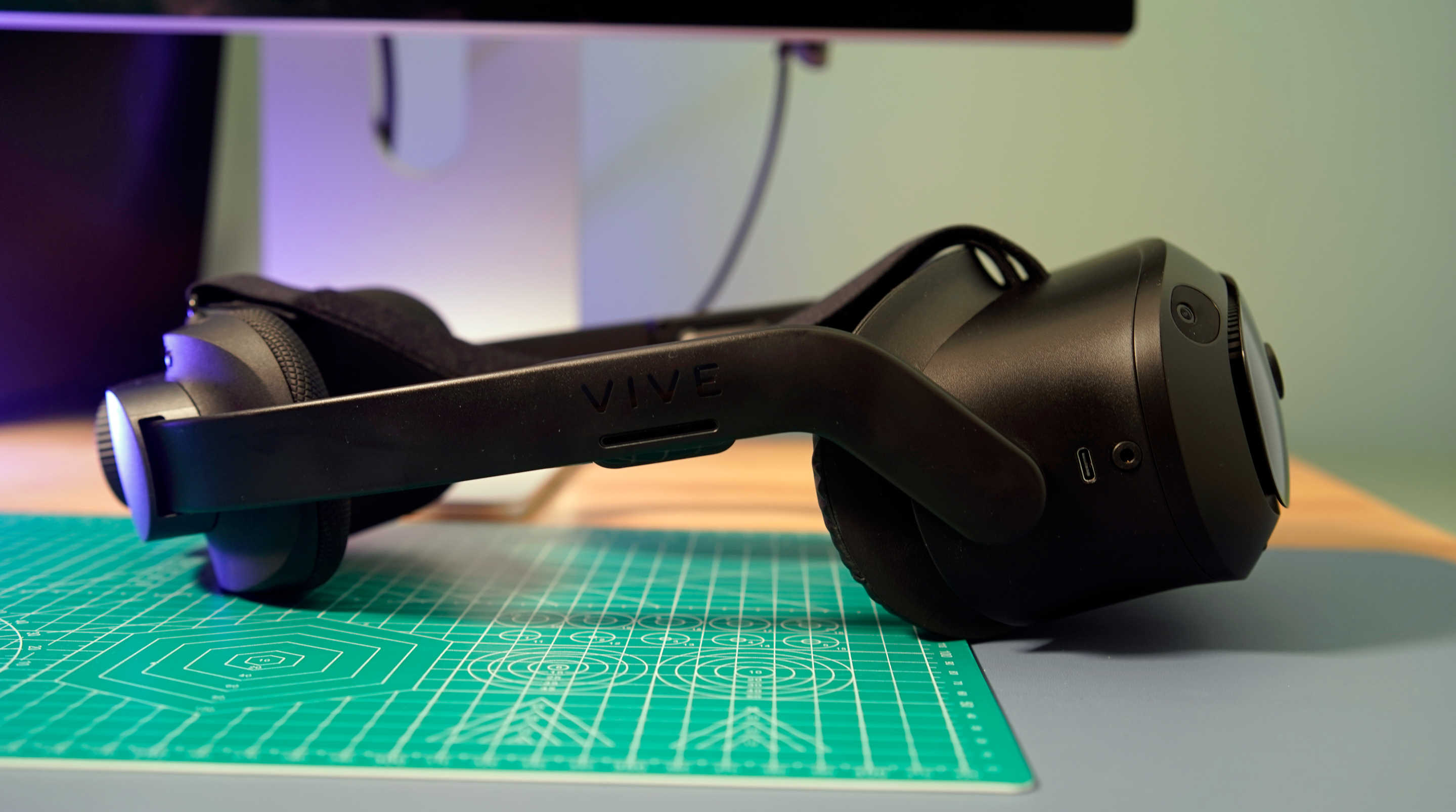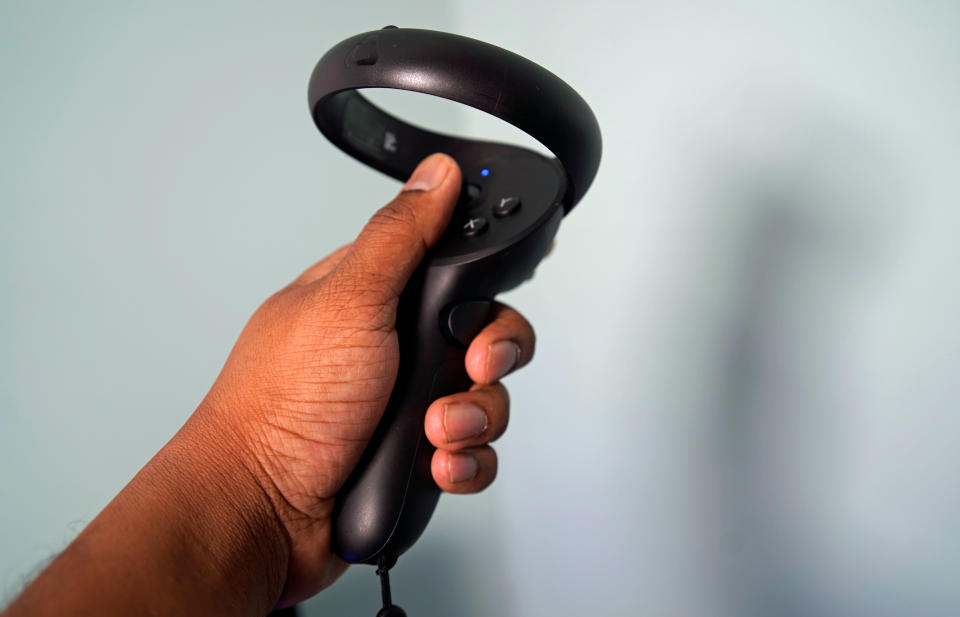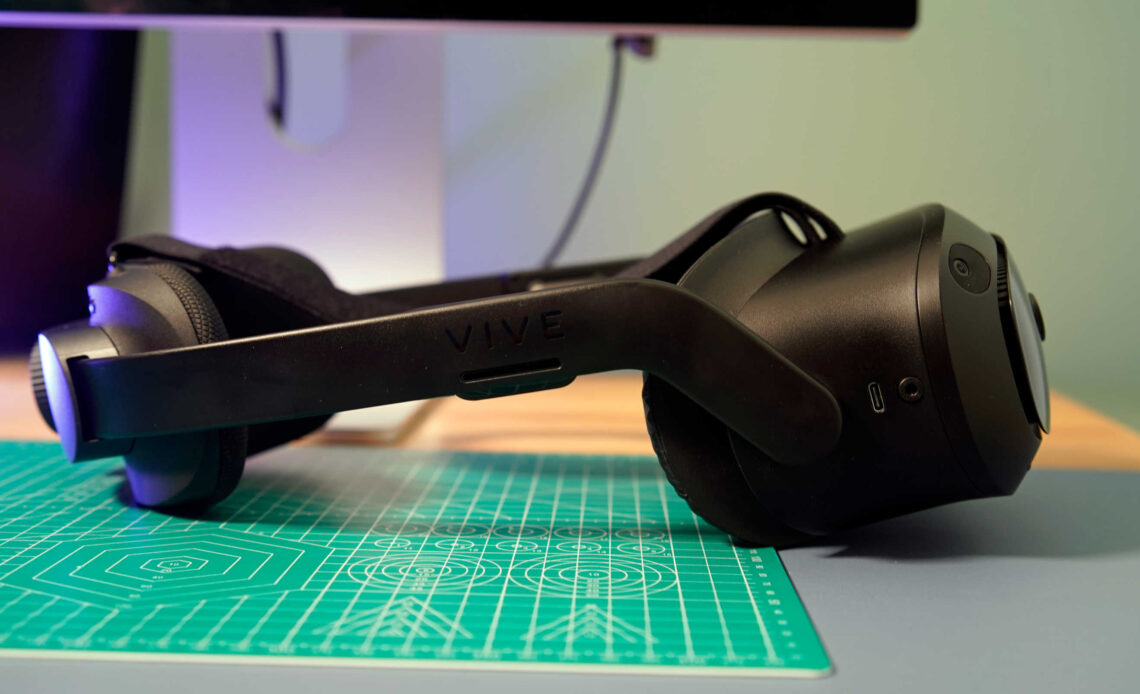The Focus Vision shines best when it comes to overall build quality and comfort. Even though it’s made of plastic like the Quest 3, it’s a sturdy device that clearly looks more high-end than Meta’s offerings. Ample cushioning helps the Focus Vision rest comfortably on your forehead and behind your noggin. And its halo-like head strap, together with the ability to flip up the visor, makes it easy to slip on over large glasses.
Best of all, the Focus Vision features a removable battery at the back of its headstrap. That provides a helpful counterweight to the bulky front-end, and it could conceivably let you stay in wireless VR all day if you’ve got enough spare batteries. The headset also has a small built-in battery, which allows you to stay in your VR session even when you’re swapping out the larger rear power cell. This is the sort of thing we’ll probably never see in a consumer Quest headset, as it’s simply too expensive to implement, and Meta isn’t building for enterprise customers who demand continuous wireless. (And to be fair, it’s also easy to just plug the Quest 3 into a USB battery pack.)

In use
Using the Focus Vision doesn’t feel much different than the Focus — a headset I liked when I reviewed in 2021, but as a business-focused device I warned that no consumer should actually buy it. That’s not too surprising, I suppose, since both headsets share the same basic design, displays and CPU. In standalone VR mode, playing the Maestro demo genuinely made me feel like I was conducting an orchestra (an experience I also had on the Quest 3S), and I enjoyed hopping around a few virtual worlds in VR Chat.
Other experiences, like the classic underwater VR short theBlu, felt just as immersive as they did on clunkier tethered headsets. While I could tell the Focus Vision didn’t have the best lenses around, and I wished it had more graphical horsepower, it still delivered a thrill as I stood in the middle of a sunken shipwreck, waiting for an enormous blue whale to pass by. It was also nice to see the Vive app storefront a bit more populated than it was in 2021. Still, it pales in comparison to Meta’s Quest library, which has far more titles and plenty of compelling exclusives (including Star Wars titles like the Vader Immortal series and Tales from the Galaxy’s Edge).


We already knew that HTC Vive could build a decent headset – the Focus Vision’s controllers and speakers are just as capable…

